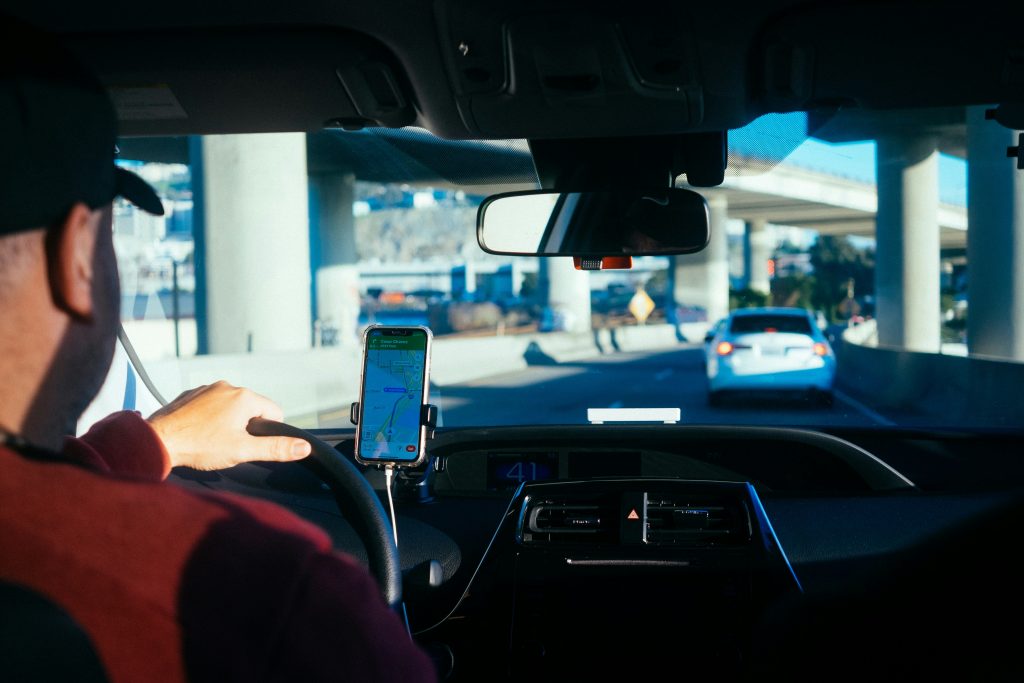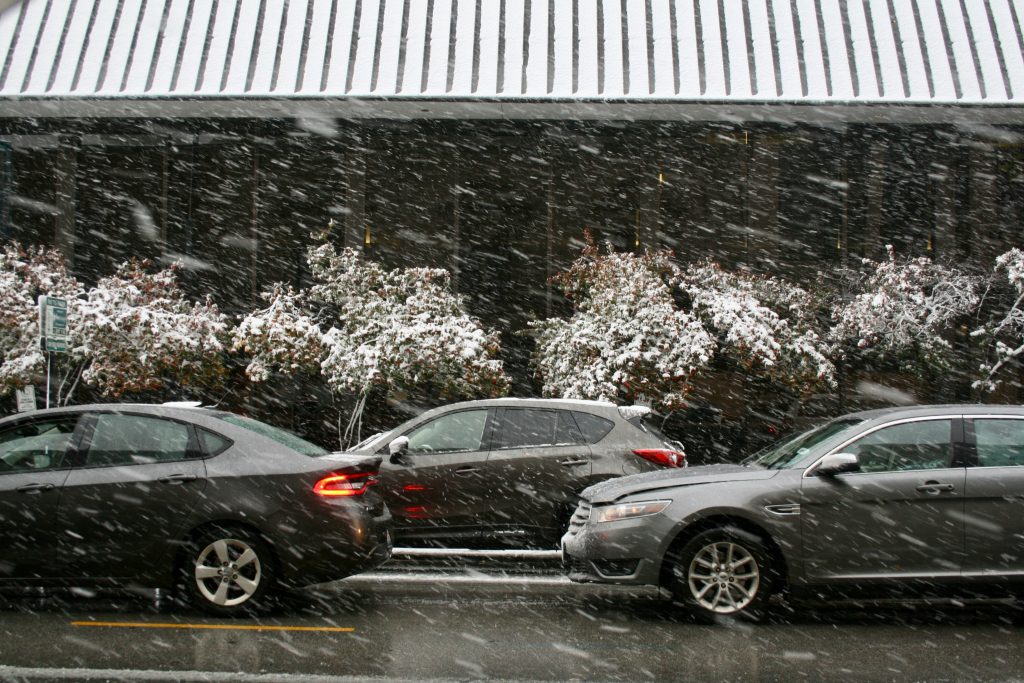A Comprehensive Guide to Rideshare Accidents in Chicago (Lyft & Uber)

Immediate Actions: Protecting Yourself and Your Claim
Being involved in any vehicle collision is a jarring experience. However, accidents involving rideshare services like Lyft and Uber in the bustling city of Chicago introduce a unique layer of complexity. Whether you were a passenger in the rideshare vehicle, a pedestrian struck by one, or another motorist involved in the incident, understanding the crucial steps to take immediately following the accident is paramount. This knowledge can significantly impact your rights and the strength of any potential personal injury claim.
In the moments following a rideshare accident, your actions can significantly influence the outcome of any insurance claims or legal proceedings.
I Got Hit by a Lyft or Uber Driver — What Now?
If your vehicle was struck by a rideshare driver, liability depends on whether the driver was on the clock (i.e., actively using the app). Their personal insurance may apply if they were offline, but Uber or Lyft’s commercial coverage may be responsible if they were transporting a passenger or en route to one. This is why it’s important to gather all possible evidence and contact a lawyer who understands rideshare insurance coverage.
Here’s a detailed breakdown of essential steps to take after you’ve been involved in a rideshare accident:
1. Prioritize Your Well-being: Seek Immediate Medical Attention
Your health is the top priority. Even if you believe your injuries are minor, it is crucial to seek medical evaluation as soon as possible. Some injuries, such as whiplash or internal issues, may not present immediate symptoms. Prompt care not only ensures you receive treatment but also creates a vital medical record for your rideshare injury claim.
2. Report the Incident Officially: Notifying Authorities and the Rideshare Company
- Call 911: If anyone is injured or there is property damage, contact emergency services right away. Be sure to get a police report number and officer information.
- Use the App: Report the crash directly through the Uber app or Lyft app to initiate their internal process.
3. Meticulously Document Everything: Gathering Crucial Evidence
Comprehensive documentation is key to building a strong case.
Gather as much information as possible at the scene:
- Photographic Evidence: Use your smartphone to take detailed photos of the accident scene from various angles.
Capture images of:
- All vehicles involved, including license plates and any damage sustained.
- Your visible injuries.
- The surrounding environment, including road conditions, traffic signals, and any relevant landmarks.
- Any debris or skid marks on the road.
- Contact Information: Obtain the full names, addresses, phone numbers, and email addresses of:
- The rideshare driver.
- Any other drivers involved.
- All passengers in any of the vehicles.
- Any eyewitnesses to the accident.
- Insurance Information: If possible, exchange insurance information with any other drivers involved. However, keep in mind the complexities of rideshare insurance.
- Rideshare Details: If you were a passenger, note the driver’s name and the vehicle’s make, model, and license plate number. If possible, take a screenshot of your ride details within the Uber or Lyft app.
For more tips, see our guide on what to do after a car accident.
4. Exercise Caution with Settlement Offers: Protect Your Legal Rights
Insurance companies may quickly offer a settlement—but be wary. These offers are often low and may not account for future costs or emotional suffering. Never accept a settlement without first speaking with a Chicago rideshare accident lawyer.
5. Seek Expert Legal Counsel: The Importance of a Chicago Rideshare Accident Attorney
Our firm can assist you with:
- Investigating and identifying all liable parties.
- Navigating Uber and Lyft insurance coverage depending on driver status.
- Negotiating with insurance adjusters or, if needed, filing a lawsuit on your behalf.
An experienced Chicago rideshare accident attorney like Jason Rubens can provide invaluable assistance by:
- Investigating the Accident: Conducting a thorough investigation to determine all liable parties. This may involve reviewing police reports, witness statements, and other evidence.
- Identifying Liable Parties: Determining who is responsible for your injuries. This could include the rideshare driver, the rideshare company (under certain circumstances), or a third-party driver.
- Understanding Rideshare Insurance Policies: Rideshare companies typically have complex insurance coverage that varies depending on the driver’s status at the time of the accident (e.g., app off, app on but no rider, en route to pick up a rider, or during a ride). An attorney can help you understand the applicable insurance policies and navigate the claims process.
- Calculating Your Damages: Accurately assessing the full extent of your losses, including medical expenses (past and future), lost wages, lost earning capacity, pain and suffering, emotional distress, and property damage.
- Negotiating with Insurance Companies: Skillfully negotiating with insurance adjusters to reach a fair and just settlement. Insurance companies often prioritize their bottom line, and having legal representation levels the playing field.
- Filing a Lawsuit (if necessary): If a fair settlement cannot be reached through negotiation, your attorney can file a personal injury lawsuit on your behalf and represent your interests in court.

The Unique Challenges of Chicago Rideshare Accidents
Rideshare accidents present unique challenges compared to traditional car accidents due to the involvement of a transportation network company (TNC) like Uber or Lyft.
Key considerations include:
- Determining Driver Status: The insurance coverage applicable often hinges on whether the rideshare driver was actively engaged in providing services at the time of the accident. This can be a point of contention with insurance companies.
- Understanding TNC Liability: While rideshare companies are not always directly liable for the negligence of their drivers, there may be circumstances where they can be held responsible, such as inadequate driver screening or vehicle maintenance.
- Multiple Insurance Policies: Rideshare accidents can involve the driver’s personal auto insurance, the rideshare company’s commercial insurance, and potentially other parties’ insurance. Coordinating claims across these different policies can be complex.
What Happens If Your Lyft or Uber Gets in an Accident?
If you’re a passenger and your Lyft or Uber gets into a car accident, your first priority should be your safety and health. Seek medical attention immediately, even if injuries aren’t obvious. Both Uber and Lyft provide $1 million in liability coverage while a ride is in progress, which may apply to your injuries. Be sure to document the scene, report the accident through the app, and consult with a Chicago rideshare accident attorney before speaking with insurance companies.
What If a Lyft or Uber Driver Hits Me as a Pedestrian or Cyclist?
In these cases, you may be entitled to compensation through the rideshare company’s insurance, depending on whether the driver was working at the time. These claims are often more complex than standard pedestrian injury cases. Visit our pedestrian accident resource page to learn more.
Why Choose a Chicago Rideshare Accident Attorney?
Chicago’s dense urban environment and heavy traffic contribute to a higher likelihood of car accidents, including those involving rideshares.
A local attorney like Jason Rubens specializes in rideshare accidents will possess:
- Local insight into Illinois traffic laws.
- Experience with the Cook County court system.
- Familiarity with Chicago’s unique rideshare regulations.
Explore more about our personal injury legal services and how we can support you through every step.
Need Help After a Rideshare Accident in Chicago?
At The Law Offices of Jason H. Rubens, P.C., Jason is committed to helping victims of Uber and Lyft accidents secure the compensation they deserve. Jason offers a free consultation and work on a contingency fee basis—you don’t pay unless you collect. Contact us today to speak with a rideshare accident attorney in Chicago.
